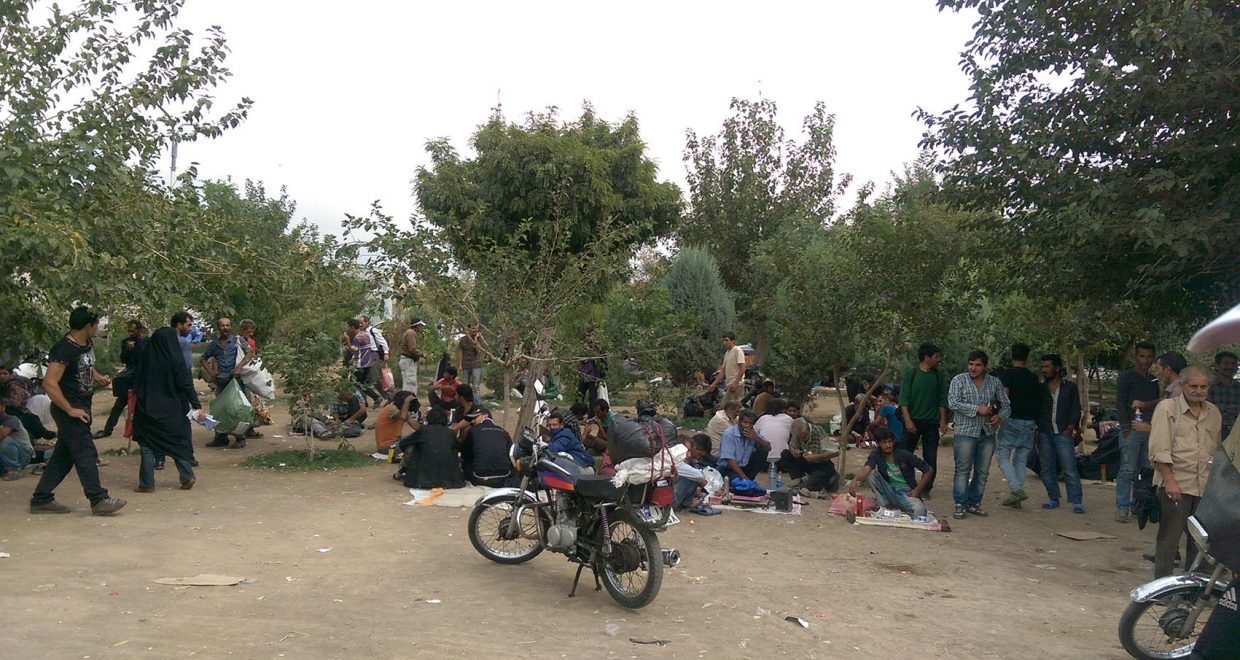How to manage a crisis in Iran?
Discussions of Iran’s modern history are discussion about crisis. Since the outset of 20th century up until today, Iran went through two revolutions, two wars, successful and failed coups, international sanctions, and profound cultural and social transformations. The escalation seen since the election of US President Donald J. Trump is just the last episode of a history of crisis that has its roots deep down the modern and contemporary era.
Since the victory of the 1979 Iranian Revolution, Iran had come to occupy a special place in world politics. The dethroning of the Shah and the establishment of the Islamic Republic marked a development that defied logics according to most intellectuals. When Michel Foucault travelled to Iran as a reporter for the Italian newspaper Corriere della Sera, he understood that the new revolutionary state was different from any previous form of government. The Islamic Republic was not a return to the past, but a new imaginary of things future. To explain this the French philosopher reworked Karl Marx’s famous sentence, religion is the opium of the people. What precedes Marx’s sentence, he said, is that ‘religion is the spirit of a world without spirit’. Islam was this new spirit of government in a time of spiritless capitalism.
In Drugs Politics: Managing Disorder in the Islamic Republic of Iran I describe how the Islamic Republic is a form of government not so different after all. Western media observers do not waste opportunities to portray the country as a ‘theocratic regime’ governed by ‘mad mullahs’ or by ‘backward clerics’. They do so literally without knowledge of on-the-ground transformations of Iranian society and with strong ideological opposition to the Iranian state. Instead, I use long-term ethnographic analysis, interviews and archival research to show how the Iranian state does not govern through ideological and religious approaches, but based on crisis management and pragmatic calculi. The Iranian state allows and cover the costs of gender reassignment surgery guaranteeing the right of trans people (while not recognising same-sex desire); it also allows temporary marriage in a way to regulate sex work or sexual relations beyond traditional marriage; it implements a regulated system of organ donation through a legal market. Where it goes further is in regards to the phenomenon of illicit drugs (to go back to Marx’s opium of the people).
The main object of the book is crisis of drugs. Iran has wrestled with a drug crisis for several decades. While at forefront of the War on Drugs topping the world’s list of drug seizures, the Islamic Republic had to counter the implications of widespread drug use among its population. Drugs represented a health and ethical crisis for a political order that considered itself based on a moral legitimacy. Yet, rather than using religious or ideological means, it was public health consideration that governed the drug crisis. Under a nationwide harm reduction programme, Iranian authorities sponsored distribution of methadone in clinics and prisons, needle exchange programmes, and a comprehensive system of ‘addiction’ rehabilitation. (It’s worth mentioning that some of these programmes are highly controversial in many Western countries, including the United States). Debating drug policy reform has evolved in such a way that today officials and experts discuss the benefits and challenges of medical marijuana, regulated opium, safe-injection rooms, and drug decriminalisation, in line with a global shift towards reform of drugs policy.
Rather than top-down accounts, I uncover how Iran’s politics on illicit drugs works on the ground. Visiting clinics, rehab centres, drug using hotspots (including a few under the bridge), and interviewing state officials, local NGO workers, and international experts I show how Iran’s experience in managing the drug crisis could reframe our understanding of that country in its fortieth anniversary after the 1979 Revolution. With an ongoing opioid epidemic in the United States and rates of HIV/AIDS surging across the Middle East and North Africa, the Iranian case is all the more relevant when seen in a global perspective.
Drugs Politics: Managing Disorder in the Islamic Republic of Iran is available to read online through Open Access.
Maziyar Ghiabi’s is Departmental Lecturer in Modern Iranian History and Titular Lecturer at Wadham College, University of Oxford. His research interests are in political and historical ethnography; social history of modern Iran; drugs history; state formation; qualitative and participatory methods. Drugs Politics is his first book.
Image: Darvazeh Ghar, South Tehran, September 2016. Large groups of men and women gather in a public park to consume heroin, crystal meth, and other intoxicants. NGOs and charities provide harm reduction kits (clean needles, condoms, etc.) in line with the Iranian state’s public health approach.






